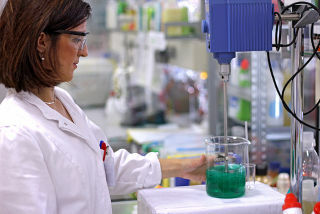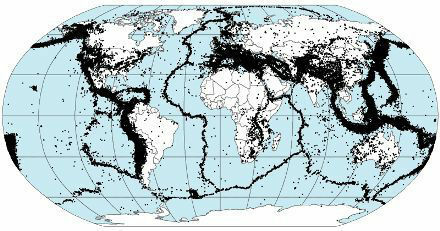Chemical Engineering is a branch of engineering that studies the processes of transforming matter into consumer goods for society. This area of activity began in the nineteenth century in England, being linked to the advent of the Revolution Industrial, when there was a set of technological changes with a profound impact on the process productive. But its development took place even in the United States during the two great World Wars.
But what does a chemical engineer do?
As said, he understands and acts in the processes of physicochemical transformations, that is, it knows, for example, at what temperature or pressure a given machine must operate so that a given product is obtained in greater quantity. He also knows which raw materials are best suited for producing higher value-added products. It works in the industrial process units so that there is greater efficiency in the production method used, that is, it seeks its viability.
The chemical engineer can perform the following main jobs in an industry that works with chemical processes:
Build, design, assemble and operate equipment, facilities, factories and plants;
Can work in the area of research and development of chemicals and consumer goods;
It can work in the company's logistics area;
Acting in quality control;
It can work in the area of environmental impact analysis, in the management of water, effluent and waste treatment programs industrial and atmospheric emission of industries, seeking ways to treat, allocate, minimize and reduce the generation of all these waste.

The chemical engineer also analyzes the impacts on the environment
Chemical engineering also had its beginnings strongly linked to petroleum extraction and industry heavy chemistry, so much so that, currently, one of the main areas of activity of the chemical engineer is still The petrochemical industry, where it operates from the extraction and exploitation of oil in the deposits to the delivery of petroleum fractions (such as gasoline and oil diesel) or petroleum-derived products, such as rubber, plastics, paints, synthetic fibers, among others.

A large area of activity for the chemical engineer is in the petrochemical industry
The chemical engineer in the current scenario also works strongly in industry sugarcane (sugar and alcohol), in the Green Chemistry and in processes ofbiofuel production.
Do not stop now... There's more after the advertising ;)
The chemical engineering field is quite diversified because all industries and all manufacturing areas need this professional. In addition to working in the power generation area, the chemical engineer can also work in industry pharmaceutical, automotive, cosmetics, cleaning products, construction products and foods. In addition, the chemical engineering professional can also work in the teaching area., as a professor at universities or technical schools.
With such a broad curriculum, the job market is quite vast and there is usually no lack of work for this professional.
But usually a question arises in those who intend to take this course: What is the difference between Chemical Engineering and Industrial Chemistry?
Well, the main difference is that, in Industrial Chemistry, you work on a laboratory scale, while the chemical engineer is able to work on an industrial scale.

The chemical engineer also works in laboratories, but he is able to transport the data to industrial scale
The Chemical Engineering course is quite complex and requires a lot of dedication (it's even a full-time course). Anyone wishing to enter this area should like subjects such as Chemistry, Physics, Mathematics and Biology, as it is a course that involves a lot of calculations. In addition, it is also important to have computer knowledge, as you work with computer simulations. And the most important: develop logical and strategic thinking, enjoy innovation and be creative, as the professional in this area needs to identify, reformulate and solve chemical engineering problems, in addition to developing, creating and knowing how to use new techniques and tools.
In Brazil, Chemical Engineering courses usually involve 10 semesters (5 years) and the best evaluated are:
* Rio de Janeiro (UFRJ);
* Porto Alegre (UFRGS);
* Florianópolis (UFSC);
* Campinas (Unicamp);
* São Carlos (UFSCar);
* São Paulo (USP).
This course also has the mandatory internship part and is regulated according to Law No. 5.194, of December 24, 1966. According to CREA-SP, the average starting salary is R$ 3,732.00 with a workload of six hours a day.
By Jennifer Fogaça
Graduated in Chemistry
Would you like to reference this text in a school or academic work? Look:
FOGAÇA, Jennifer Rocha Vargas. "What is Chemical Engineering?"; Brazil School. Available in: https://brasilescola.uol.com.br/o-que-e/quimica/o-que-e-engenharia-quimica.htm. Accessed on June 28, 2021.


